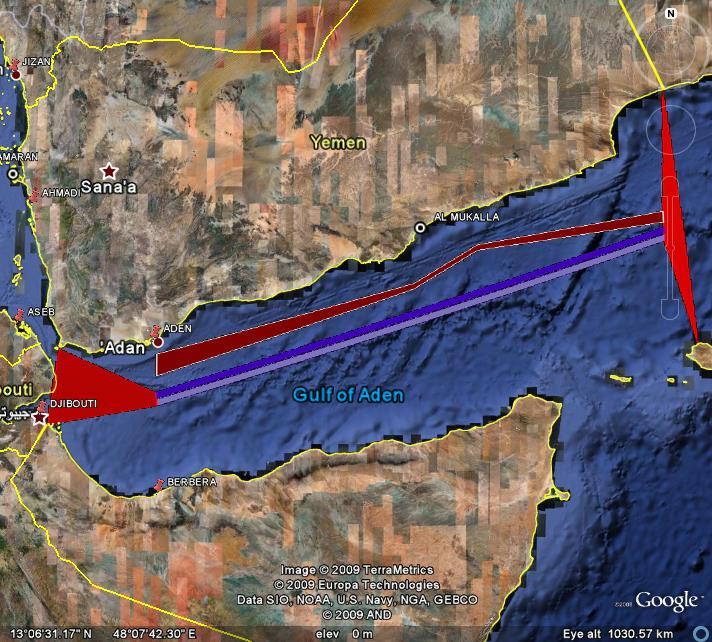Nautilus Institute’s Policy Forum‘s focus is on the timely publication of expert analysis and op-ed style pieces on the foremost of security-related issues to Northeast Asia. Its mission is to facilitate a multilateral flow of information among an international network of policy-makers, analysts, scholars, media, and readers. Policy Forum essays are typically from a wide range of expertise, political orientations, as well as geographic regions and seeks to present readers with opinions and analysis by experts on the issues as well as alternative voices not typically presented or heard. Feedback, comments, responses from Policy Forum readers are highly encouraged.
Policy Forum 09-016: The Chinese Economic Stimulus Package and its Impact on Environmental Protection Organizations
This article by Jia Xijin, Associate Professor at the NGO Research Center at Tsinghua University, and Zhao Yusi, Project Assistant of NGO Research Center at Tsinghua University, summaries several articles on the impact of China’s economic stimulus package on environmental protection organizations. The report concludes, “Obviously this investment plan will build the confidence of civil society environmental protection organizations… In China today civil society organizations are trying to both expand the role of environmental protection and provide rational guidance and the smart exchange of ideas to the public.”
Go to the articlePolicy Forum 09-015: Living With a Nuclear North Korea
Selig S. Harrison, Director of the Asia program at the Center for International Policy and author of Korean Endgame, writes, “Pyongyang is ready to rule out the development of additional nuclear weapons in future negotiations, but when, and whether, it will give up its existing arsenal depends on how relations with Washington evolve… Faced with this new hard line, the United States should choose between two approaches, benign neglect and limiting the North’s arsenal to four or five weapons.”
Go to the articlePolicy Forum 09-014: How Far Will the Seoul-Pyongyang Aggravation Go?
Alexander Vorontsov, Head of the Korea and Mongolia Department at the Institute of Oriental Studies at the Russian Academy of Sciences, writes, “there are grounds to believe that Seoul has opted for a DPRK strategy that in a number of basic features repeats the ‘regime change’ policy towards North Korea that was pursued in the first six years of George W. Bush administration.”
Go to the articlePolicy Forum 09-012: The Somalia Multilateral Anti- Piracy Approach: Some Caveats
Mark J. Valencia, Visiting Senior Fellow at the Maritime Institute of Malaysia (MIMA), and Nazery Khalid, Senior Fellow at MIMA, write, “Rather than extend the Somali intervention ‘lessons’ to Southeast Asia, the international community should extend to the GOA and Somalian waters the lessons from Southeast Asia, i.e. assistance to enhance political and social stability, economic development, and anti-piracy technology and training with the goal of indigenous control of the anti-piracy response.”
Go to the articlePolicy Forum 09-011: The DPRK-US Nuclear Game in the Obama Era
Shen Dingli, Executive Dean of Institute of International Studies and Director, Center for American Studies at Fudan University, Shanghai, writes, “As the US would not accept the DPRK demand to unify the peninsula on its terms and, as the US still perceives political and military utility of its own nuclear weapons, it is unrealistic to expect North Korea to disarm its nuclear weapons program in the first place, no matter which American president is in power.”
Go to the articlePolicy Forum 09-010: Ending Somalian Piracy: Pitfalls and Possibilities of Australian Naval Intervention and Long-Term Human Security Policy Initiatives

Carolin Liss, a Post-doctoral Research Fellow at the Asia Research Centre at Murdoch University, writes, “patrolling pirate infested waters will not address the underlying root causes of modern day piracy, which include illegal and over-fishing, lax (international) maritime regulations, ineffective and corrupt government forces, armed conflict and widespread poverty… It is therefore important for Australia, and other countries already involved in combating Somali piracy, to understand that the current international patrols have to be seen as a first step in a longer process.”
Go to the articlePolicy Forum 09-009: No More Victims to the Devil of America’s Own Creating
Haksoon Paik, is a senior fellow at the Sejong Institute in South Korea, an independent think tank devoted to the study of national strategies of Korea, writes, “The Obama administration should adopt a new pragmatic approach… if it wants to solve the North Korean nuclear issue. There’s no other way but to encourage and accommodate North Korea’s willingness to cooperate, getting out of a vicious circle of distrust, as a realistic way to solve key pending issues with North Korea.”
Go to the articlePolicy Forum 09-008: Obama Will Be Challenged by North Korea
Bruce Klingner, Senior Research Fellow for Northeast Asia in the Asian Studies Center at the Heritage Foundation, writes, “As President Obama contemplates the Sisyphean task of making real progress in North Korean denuclearization, he should first insist that North Korea comply with its existing six-party talks agreements. These include: issuing a data declaration addressing its uranium weapons program and proliferation activities; disabling all nuclear facilities; and accepting a verification protocol that meets international standards.”
Go to the articlePolicy Forum 09-007: A DPRK ‘Shangri-la’ Powered by Solar Electricity
Victor Hsu, National Director of World Vision International’s program in the DPRK, describes how the inclusion of solar energy has been integral to the successful collaboration between World Vision International and the DPRK in a village in Yongtan County.
Go to the articlePolicy Forum 09-005: North Korea: 20 Years of Solitude
John Delury, Director of the China Boom Project and Associate Director of the Center on U.S.-China Relations at the Asia Society, writes, “The solution to the myriad problems created by North Korea’s long isolation is, quite simply, to end the isolation. The antidote to North Korea’s evasive hostility, always linked to a demand for “face,” is full engagement.”
Read a discussion of this article here.
Go to the article
